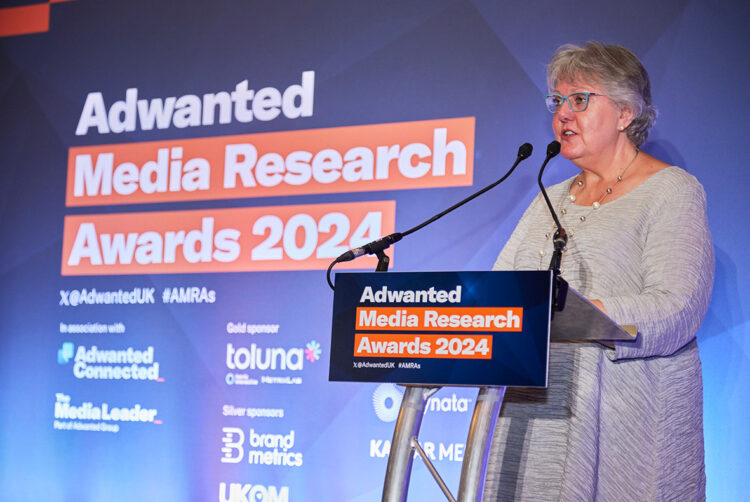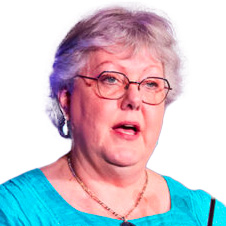2025 AMRAs: 10 years of innovation in media research

Opinion
Amid huge changes in audience behaviours and technical developments in the past decade, the best media research continues to answer real business challenges.
How time flies. Is it really 10 years since the Adwanted (Mediatel) Media Research Awards were launched? They were set up to celebrate those driving innovation in UK media research — a previously unsung group of people who contribute so much to the success of our business but certainly 10 years ago were not publicly recognised.
Since 2015, I have had the enormous privilege of submitting papers (didn’t win), being a judge and now for the past three years acting as head judge. So I have seen it from all sides.
And what I have seen is some amazing work delivered by some amazing people. Work that has really stood out and contributed to the success of the companies that delivered the projects.
A time of change
Over the past 10 years, we have seen tremendous change in our industry in the ways in which consumers behave and their willingness to take part in research. It is a growing challenge to keep respondents engaged and willing to share their data.
At the same time, we have seen enormous change in technical developments, from increasingly harnessing the power of big customer datasets to creating synthetic data and now using AI as part of our solutions.
Alongside these developments, there has been continual pressure on businesses to provide research solutions with very tight budgets. This is certainly an industry that doesn’t stand still and embraces new developments and opportunities as they arise.
So, as I look back. at risk of just listing out all the winners, there are a few standouts for me. I have highlighted just four here.
Game-changing work
Back in 2015, the first Grand Prix winner was Sky Media for its work on AdSmart. This project involved robust research to measure the impact of targeted advertising sent to set-top boxes. Adsmart was a game-changer and was really the forerunner of the development of targeted advertising, allowing brands to target specific households based on location, lifestyle and demographics.
My next standout would be the 2018 Grand Prix, which went to Channel 4 for its Contextual Moments work. It revealed that viewers exposed to ads contextually were twice as likely to remember seeing them compared with those who saw ads in regular placements.
The research found that ads placed within relevant and emotionally charged content were more engaging and viewers were more likely to pay attention to ads that were contextually relevant to the programming that was being watched. Ads shown in the right context positively influenced viewers’ perceptions of the brand. And contextually relevant ads were found to be more effective in driving consumer action.
In 2019, Thinkbox won the Grand Prix for Profit Ability. This work emphasised the importance of long-term return on investment (ROI) for brands, addressing the current focus on short-term impacts. This issue still concerns us today. Thinkbox was particularly praised for its transparent and authoritative approach.
Profit Ability’s insights extended beyond TV, benefiting other media as well. And these insights enabled advertisers to better understand the long-term benefits of TV advertising and which in turn can lead to long-term brand growth and profitability for businesses.
My final standout is last year’s Grand Prix, which went to Global for Powering Up. This work demonstrated how Global transformed the commercial appeal of the 50-year-old LBC brand through a multifaceted research approach.
The key here was the combination of data sources and the benefits that brought, including allowing for more precise targeting of audiences. With better data integration, Global can optimise ad campaigns to ensure higher engagement and this in turn increases advertiser ROI.
Global effectively demonstrated the value of integrating multiple datasets to enhance the effectiveness and efficiency of ad strategies, with the aim of ultimately driving better business outcomes.
Making an impact
For me, one of the most important facets of judging the awards is the big “so what”.
In all the cases I have highlighted, we have seen great outcomes from the work. The business impact has been clear, whether that is improving ROI for advertisers or contributing to our understanding of advertising effectiveness.
Winning an Adwanted Media Research Award requires a combination of factors, including the quality of the research, innovation in approach, the impact the work has on the industry and how the work is communicated. Competition is fierce and the awards are highly valued.
It has been an enormous privilege to see the quality of work delivered to help answer real business challenges. Here’s to the next 10 years, when I expect we will see increased innovation, technical developments beyond our imagination and all of it contributing to better business outcomes.
 Belinda Beeftink is research director at the IPA
Belinda Beeftink is research director at the IPA




